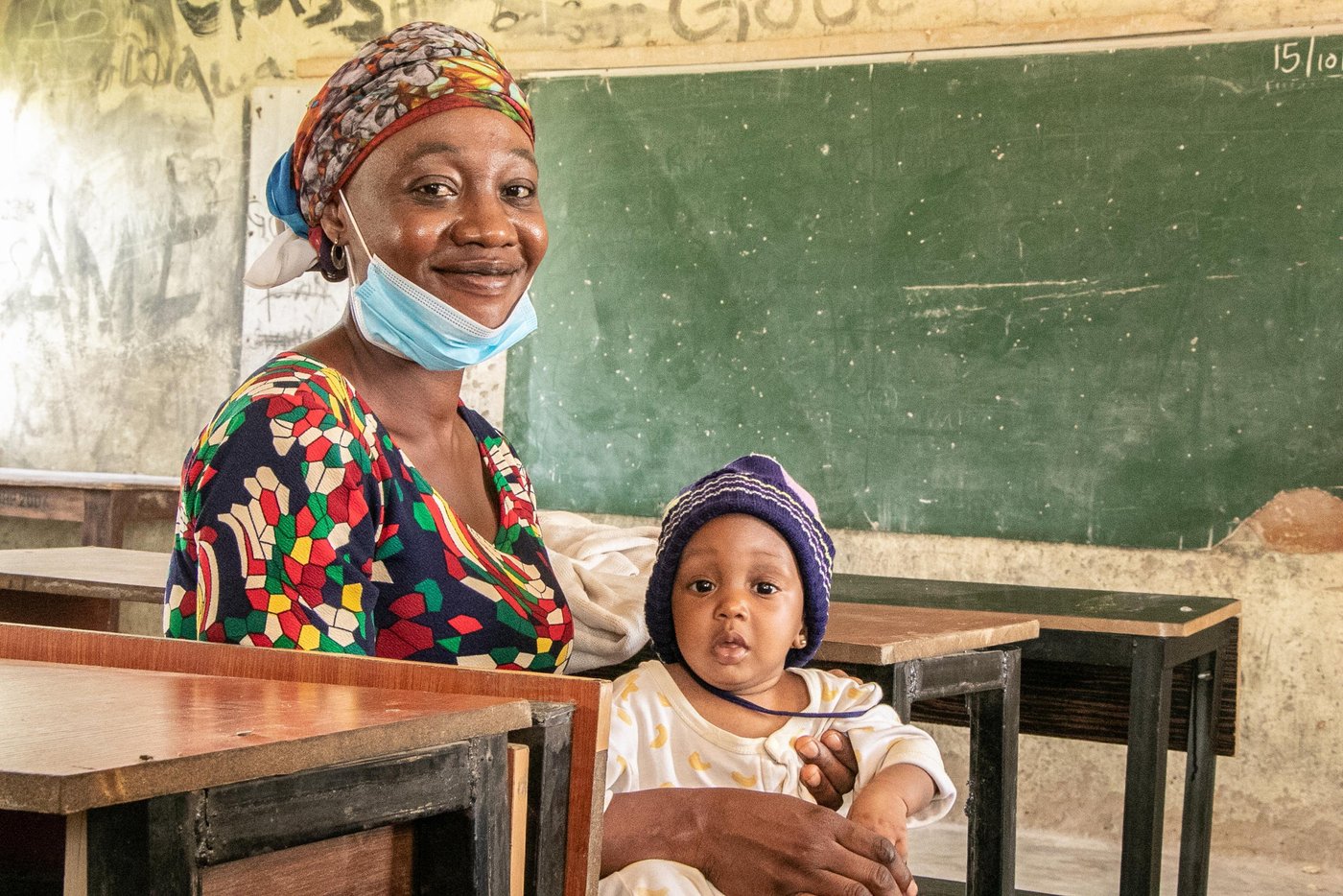The conflict that erupted in 2009 has cast a shadow over a generation of children in north-east Nigeria. Hampered by underfunding, lack of infrastructure and damage to school buildings, the education sector has been hit hard by the ongoing violence.
Over the last decade, hundreds of teachers have been killed and many more have been forced to flee their homes. Thousands of schools have been damaged, destroyed, or forced to close.
Millions out of school
Continued displacement has plunged families into hardship, often pushing children further away from school. In early 2020, the humanitarian community estimated that over 1.4 million girls and nearly 1.3 million boys were out of school and facing an uncertain future without education.
As in many countries around the world, measures to contain the spread of Covid-19 led to the closure of schools and other education activities across Nigeria in April 2020. Children who had been benefitting from NRC’s education programme were forced to stay at home for almost six months.
The humanitarian community estimates that 4.2 million students, representing the most vulnerable groups of children, would be particularly affected by the pandemic. As the economic downturn impacted the most vulnerable households, many children had to work to support their families.
The Norwegian Refugee Council (NRC) works to support refugees and displaced people in over 30 countries around the world, including Nigeria. Support our work today

Children had to help on the farms
We spoke to residents of Mubi, a town in north-east Nigeria.
“It was a very long period for us. During the lockdown, we had to stop working for weeks,” says John, a father.
“Things were hard,” agrees Fatima, a mother, “and the children could not go to school. They had to help on the farms so we could make ends meet and have enough food for the family.”
We were unable to play because of Covid-19Rose, 11
Rose, 11, was one of the children who had to work. “I was helping my parents on the farm to plant rice, beans and maize,” she says.
“I have missed my friends from school. Apart from farming, we were unable to play because of Covid-19. We were told to keep a safe distance from other people.”
Education could finally resume
In September and October, the authorities in north-east Nigeria announced that education activities would resume. NRC began recruiting teachers, constructing learning facilities and identifying potential students.
Rose was able to return to study on our non-formal education programme, where she is learning basic skills such as reading and writing.

“We worry that the suspension of school due to the pandemic has increased the number of out-of-school children and set back the progress we have made in the education sector over recent years,” explains Buba Dunah, an education officer for NRC in Mubi.
“As educational activities resumed, our community workers carried out awareness-raising sessions on the importance of education and the need for parents to enrol their children back in our programme.”
Adapting to the “new normal”
Importantly, with the re-opening, schools had to adapt to a “new normal” and apply preventive measures against Covid-19.
Children have to do things they are not used to, like wear face masks and not stay close to each otherSidamari, a teacher with NRC
“Children have to do things they are not used to, like wear face masks and not stay close to each other,” says Sidamari, one of NRC’s non-formal teachers in Mubi.
“It is challenging, but I am up to the task. I feel a sense of fulfilment when I see children doing well in my class.”
Eleven-year-old Kauna is glad to be back. “I am happy to return to school,” she says. “I may not be able to play with my friends like we used to but I can continue to learn parts of speech and pronouns.”


